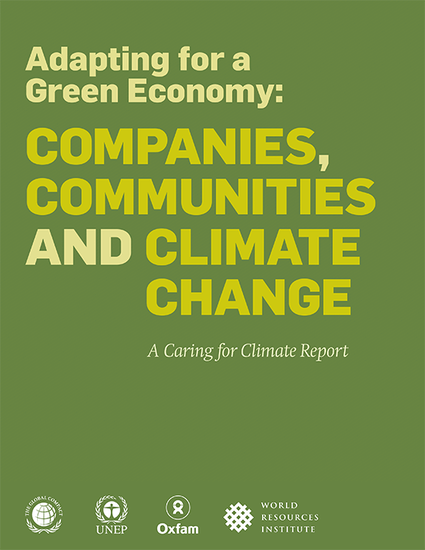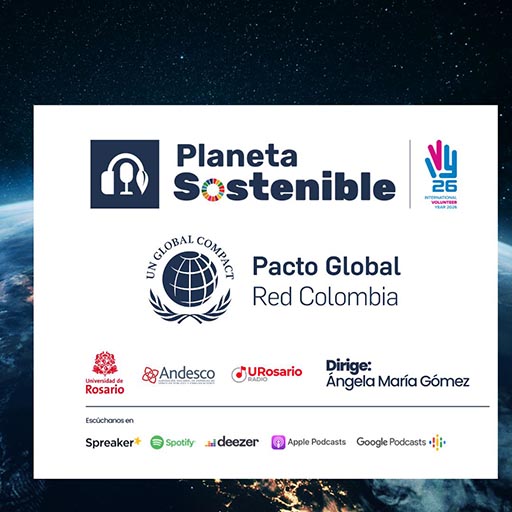Adapting for a Green Economy: Companies, Communities and Climate Change

Foreword
Twenty years ago, world leaders gathered at the Earth Summit in Rio de Janeiro and signed the first global agreement to tackle climate change. At the time, the impacts of climate change on communities and economies were just beginning to be understood, and the role of the private sector in responding to these challenges was only just emerging. But two decades later, climate change is no longer a distant threat looming on the horizon; it has emerged as arguably the greatest global challenge of our time.
And while much of the responsibility to drive climate change solutions that address the needs of the poorest and most vulnerable rests with governments, it has become increasingly clear that business will be an essential partner in preparing for and responding to the impacts of a changing climate and in building a global green economy.
At the end of this year, governments will gather in Durban, South Africa, for the next round of United Nations negotiations to advance global action on climate change. In June 2012, the UN Conference on Sustainable Development (Rio+20) will seek to secure new and comprehen-sive commitments to sustainable development.
This publication aims to support the efforts leading up to Rio+20, as well as the activities, processes, commitments and partnerships that flow from it. By highlighting the nexus among climate change risks and opportunities, sustainable development and climate change adapta-tion, Adapting for a Green Economy provides useful guidance to business leaders and policymakers alike.
The devastating environmental, social and economic impacts of climate change are already being felt around the world, with the poorest nations and communities disproportionately affected. This report offers insights on important questions surrounding the role of business in adaptation:
- In practice, how can businesses address risks in their own supply chains and operations while also supporting the adaptation efforts of the communities on which they depend?
- How can the private sector build climate resilience in partnership with communities in ways that are mutually supportive?
- What are the barriers that may prevent effective business engagement in adaptation?
- How can business investment in adaptation complement necessary public policies, and how can public policies create the context for appropriate private sector action?
Developed in collaboration with Oxfam International, the World Resources Institute and the United Nations Environment Programme (UNEP), Adapting for a Green Economy is based on the results of a qualitative survey of business leaders who support the Caring for Climate initiative, a joint United Nations Global Compact-UNEP platform involving more than 400 businesses committed to advancing climate action.
There is much that businesses of all sizes and sectors can contribute to effective climate adaptation. This report provides actionable information that can help create effective strategies that benefit business and communities, coupled with common-sense suggestions for supportive government policy.
| Categorías: | Medio Ambiente |
| Autores: | Oxfam , UN Global Compact , United Nations Environment Programme , World Resources Institute |
| ISBN-10(13): | N/A |
| Editorial: | UN Global Compact |
| Fecha de publicación: | 2011 |
| Edición: | 1 |
| Número de páginas: | 72 |
| Idioma: | Inglés |
| E-Book: | Clic aquí para descargar tu E-Book |






